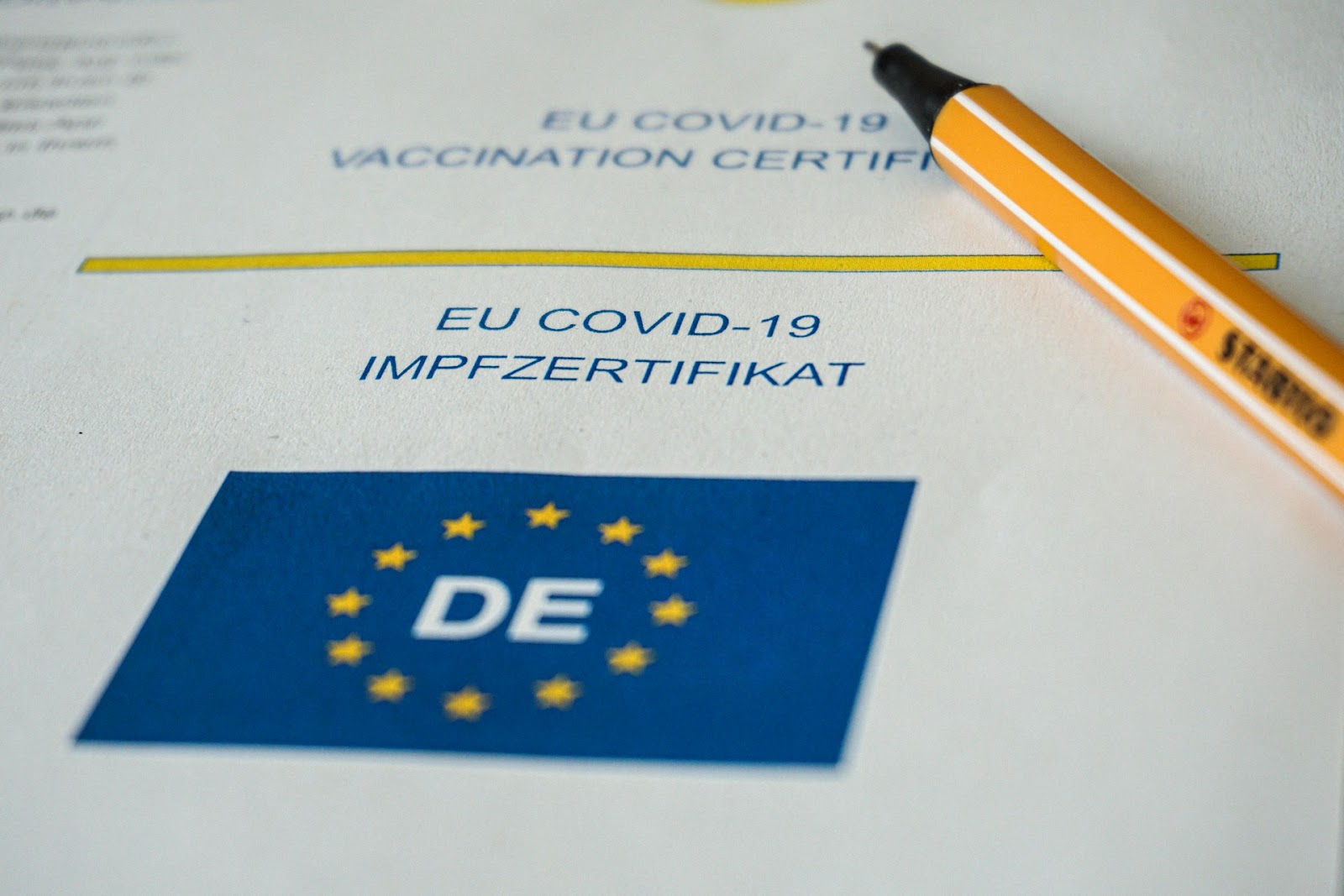LinkedIn
Facebook
Instagram
YouTube
In today's interconnected world, the need for accurate and trusted document translation has never been more critical. Whether you're applying for immigration, conducting international business, or pursuing education abroad, your documents must cross language barriers while maintaining their legal validity and authenticity.
Notarized translation services bridge this gap by providing an essential layer of verification that goes beyond simple language conversion. These specialized services combine professional translation expertise with official notarization, creating documents that foreign governments, institutions, and businesses can trust and accept with confidence.
A notarized translation service involves a notary public who verifies the identity of the translator, confirming that the person who completed your document translation is legitimate and qualified. This process becomes particularly valuable when you need to translate to English or other languages for official purposes, as it adds credibility that self-translations or unofficial services cannot provide.
The role of translation services in fostering global growth cannot be understated. These services not only bridge language gaps but also promote cultural exchange in our increasingly interconnected world.
This comprehensive guide will walk you through everything you need to know about certified document translations and notarized services. You'll discover the key differences between certification and notarization, learn when each type is required, and understand how to choose the right service provider for your specific needs. Whether you're dealing with birth certificates, marriage documents, or business contracts, this article serves as your roadmap to navigating the complex world of international document authentication.
In addition to standard document translations, specialized services such as employee manual translation are also available. These ensure clear communication within organizations by providing accurate and culturally relevant translations for HR needs.
Moreover, the importance of professional translation services extends to e-commerce as well. Such services help boost sales and enhance customer experiences globally by providing accurate translations of product descriptions and other key content.
Lastly, it's worth noting that translation plays a significant role in language preservation. By providing expert translation services for endangered languages, we ensure their cultural significance is maintained for future generations.
For any inquiries or assistance regarding our wide range of translation services, feel free to contact us. We're here to provide prompt support and help you navigate your translation needs effectively!
Notarized translation is a specialized type of document translation service that combines language expertise with legal verification. This process involves a notary public, who acts as an impartial witness to authenticate the translator's identity and confirm their professional credentials. The notarization adds an official seal of legitimacy that many institutions require for accepting international documents.
A notary public plays a crucial role in verifying translators by:
It's important to note that the notary public does not assess the quality or accuracy of the translation. Their responsibility is solely focused on verifying identities and ensuring compliance with procedures.
When choosing professional translation services, it's essential to understand the difference between notarization and accuracy assurance. While translation agencies often offer both services, each serves a different purpose:
Notarization focuses on:
Accuracy assurance involves:
Many certified translation services, such as those offered by ASAP Translate, combine both elements to deliver comprehensive solutions. When you work with a reputable translation service, they typically offer notarized translations alongside certificates of accuracy, giving you dual protection for your important documents.
This dual approach becomes especially valuable when dealing with sensitive legal, medical, or financial documents where both authenticity and precision are equally important. Notably, email translation services can ensure clear communication in over 60 languages for business or personal emails, while professional translation services are essential for academic transcripts and course guides, as highlighted in these articles about using professional translation services for academic transcripts and course guide translation services.
Document translation services that understand this distinction can guide you toward the appropriate level of verification your specific situation requires.

Certified translation services provide you with a certificate of accuracy that guarantees the translation's completeness and precision. When you receive a certified translation, the translator or translation agency signs a sworn statement affirming that the translated document accurately reflects the original content without omissions or alterations. This certificate serves as the translator's professional guarantee of quality and accuracy.
These certified translations are crucial for various legal and official purposes. For instance, when dealing with USCIS immigration applications, academic institutions accepting foreign transcripts, professional licensing boards, or court proceedings requiring accuracy attestation, certified translations are typically required.
In addition to these scenarios, certified passport, diploma, and driver's license translations are also essential services that fall under the umbrella of certified translations.
On the other hand, notarized translation operates on a different principle entirely. The notary public focuses exclusively on verifying the translator's identity rather than evaluating the translation's quality. You present your identification to the notary, who witnesses your signature on the translated document and applies their official seal. The notarization confirms who performed the translation but makes no claims about how well it was done.
Notarized translations are often requested for:
Some institutions demand both services simultaneously. Immigration authorities might require a certified translation with notarization, combining accuracy assurance with identity verification. You should always verify specific requirements with the receiving institution, as preferences vary significantly between organizations, countries, and legal systems.
The choice between certified and notarized translations depends entirely on what the requesting authority values most: translation accuracy or translator authenticity.
For more information on what notarized translations entail and how they differ from certified translations, you can refer to this official resource about notary information in Ohio.
Notarized Translation Service for a Global World becomes essential when you need to present international documents that carry legal weight across borders. Foreign authorities require assurance that the person translating your documents possesses legitimate credentials and professional standing.
When you submit documents for immigration documents processing, consular offices and government agencies need confidence in the translator's identity. A notary public's verification creates this trust by confirming the translator's authenticity through official identification procedures. This verification process helps your documents gain acceptance in countries where officials may be unfamiliar with your original translator.
Legal translation services with notarization prove indispensable in several key scenarios:
You'll commonly encounter notarization requirements for personal and official documents that form the foundation of legal identity:
These documents carry significant legal implications, making translator identity verification crucial for acceptance.
The notarization process creates a paper trail that foreign authorities can trace and verify, reducing the likelihood of document rejection. When you present notarized translations, you demonstrate compliance with international standards for document authentication, streamlining approval processes across different jurisdictions and legal systems.
Moreover, in today's global job market, having a resume tailored for multilingual job opportunities can open up numerous prospects. Understanding the nuances of translation in global supply chains can also significantly enhance operational efficiency and foster clear communication in international collaborations.
Securing a notarized translation requires careful coordination between professional translators and the notary public process to ensure proper document authentication. The journey begins with selecting qualified translators who possess expertise in your specific document type and target language.
You need to identify translators with proven experience in handling official documents. Look for professionals who understand legal terminology, cultural nuances, and formatting requirements specific to your destination country. Many translators specialize in particular fields such as medical, legal, or academic documents. For instance, if you require a translation related to healthcare, it's essential to follow best practices for medical translations which can significantly enhance patient care and safety by effectively bridging language barriers.
Your chosen translator completes the translation work, ensuring accuracy and completeness. Professional translators maintain detailed records of their qualifications and can provide certificates of accuracy alongside their translation services.
The notary public process involves several critical requirements:
Smart document preparation involves requesting both services simultaneously. This dual approach provides:
It's essential to understand the difference between notarized and certified translations. The notary public focuses exclusively on verifying the translator's identity rather than evaluating translation quality. This distinction makes the combination of certified and notarized services particularly valuable for critical documents requiring both accuracy and authenticity verification.
In addition, it is crucial to familiarize yourself with the notary guidelines to ensure a smooth notarization process.

Selecting the right professional translation services requires careful evaluation of several critical factors that directly impact the acceptance of your documents by international authorities. You need to prioritize translation company credentials, translator qualifications, and industry-specific expertise when making your decision.
Experience and Reputation form the foundation of reliable translation services. Look for providers with:
Legal and Government Terminology Expertise cannot be overstated in its importance. Professional translators specializing in official documents possess deep knowledge of:
Accredited translation service providers offer significant advantages when dealing with government agencies and international institutions. These translators have undergone rigorous testing and certification processes that validate their competency in both languages and specialized terminology.
Sworn translation services provide an additional layer of credibility. Sworn translators take legal oaths to provide accurate translations and are often registered with government bodies or professional associations. Their translations carry legal weight and are typically accepted without question by:
Professional providers implement multi-step quality control processes including peer review, proofreading by native speakers, and compliance checks against official formatting requirements. You should verify that your chosen provider offers revision guarantees and stands behind their work with professional liability insurance.
The investment in qualified professional services pays dividends through faster processing times, reduced rejection rates, and peace of mind knowing your critical documents meet international standards.
When you need to translate documents to English or other languages for official purposes, certain document categories consistently require notarized translations. Understanding which documents need this specialized service helps you prepare for international processes more effectively.
Birth certificates represent one of the most frequently requested document translation services. These foundational identity documents require precise translation of official terminology, dates, and legal phrases that vary significantly between countries. Marriage certificates follow closely behind, demanding accurate rendering of ceremonial language and legal terminology that establishes marital status across borders.
Divorce decrees and death certificates also fall into this category, each containing specific legal language that must be translated with absolute precision to maintain their validity in foreign jurisdictions.
Academic institutions worldwide require notarized translations of educational certificates for admission and credential evaluation. Diplomas, transcripts, and degree certificates contain specialized educational terminology that varies between educational systems. You'll find that translating grade scales, course descriptions, and institutional titles requires deep cultural understanding to ensure proper interpretation by receiving institutions.
For these types of translations, academic translation services are essential as they provide the specialized knowledge needed to accurately translate complex educational terminology.
Professional licenses and certifications also demand notarized translation, particularly for healthcare professionals, engineers, and other regulated professions seeking to practice internationally.
Court documents, power of attorney forms, and contracts represent critical legal documents requiring notarized translation. These materials contain complex legal terminology that must be translated with precision to preserve their legal meaning and enforceability.
Immigration documents, including visa applications and supporting materials, frequently require notarized translations to satisfy government requirements.
Corporate documents such as articles of incorporation, financial statements, and business licenses need accurate translation of commercial and regulatory terminology. Banking documents and tax records also require specialized knowledge of financial terminology across different legal systems.
The cultural context embedded in these documents often proves as important as literal translation, making professional expertise essential for successful international document acceptance.
Navigating notarized translation services presents several critical challenges that can impact document acceptance across international borders. Inaccurate translations represent the most significant threat to successful document processing, particularly when translators lack expertise in specialized terminology or fail to capture essential language nuances that carry legal weight.
For instance, a lack of understanding in specific languages such as Hebrew or Punjabi could lead to substantial errors. Utilizing professional services like Hebrew Translation Services or Punjabi Translation Services can mitigate these risks by ensuring accurate translations.
Improper notarization procedures create additional rejection risks that you must avoid. When notaries fail to follow proper protocols or when translators present inadequate identification, receiving institutions may refuse the documents entirely. This scenario becomes particularly problematic when you're working under tight deadlines for immigration applications or business transactions.
Self-translations, even when properly notarized, carry substantial risks that professional services eliminate:
Professional translators bring years of experience handling complex documents and understanding how subtle word choices can alter meaning. They recognize when certain phrases require specific translations to maintain legal validity across different jurisdictions.
Translation mistakes in notarized documents can trigger serious consequences beyond simple rejection. Incorrect personal information may lead to identity verification issues that delay processing for months. Misrepresented dates or legal statuses can result in application denials that require complete resubmission with corrected documentation.
Financial implications compound these problems when you consider visa application fees, legal consultation costs, and potential business opportunity losses. Cultural context errors prove particularly damaging in family law documents, where relationship terminology varies significantly between cultures and legal systems.
You must recognize that notarization verifies translator identity but provides no guarantee of translation quality, making professional expertise essential for documents requiring absolute accuracy. This is particularly true for sensitive legal documents where safeguarding confidentiality during the translation process is crucial.
Moreover, if you are dealing with specific fields such as gaming, it is important to understand how to overcome unique translation challenges in the gaming industry for a smooth global player experience.
Lastly, if your business requires language-specific services such as Spanish Translation Services, it is advisable to seek out certified translators who ensure accuracy and cultural relevance in your documents.

The most effective way to ensure the authenticity of translated documents is by obtaining both certified translation services and notarization at the same time. This approach tackles two important aspects of document validity: ensuring accurate translation and verifying the identity of the translator.
When you receive a certificate of accuracy along with notarization, you gain complete protection for your translated documents. The certificate guarantees that your translation is thorough, precise, and true to the original document's content. On the other hand, notarization provides authenticity assurance by confirming the translator's identity and professional qualifications through official witness verification.
This combined strategy offers significant advantages in international situations:
International institutions are increasingly favoring this comprehensive verification method because it removes any uncertainty about the reliability of documents. Universities reviewing foreign transcripts, immigration offices assessing personal documents, and courts dealing with international cases all exhibit greater trust when documents bear both certifications.
The investment in dual verification yields benefits such as quicker approvals, fewer resubmission requirements, and greater credibility in official proceedings across different jurisdictions.
In today's interconnected world, we need trusted document translations that are authentic and accurate. When it comes to important documents that will be shared internationally, we can't afford to take chances with subpar translation services that could lead to rejection or delays.
That's where professional translation agencies come in. They have certified translators and the ability to notarize documents, ensuring that your critical papers are secure. These experts know the ins and outs of legal language, cultural context, and the specific requirements of various institutions around the globe. With their help, you can rest easy knowing that your documents will be accepted by foreign governments, schools, and business partners.
Investing in professional Notarized Translation Service for a Global World brings numerous benefits:
To succeed internationally, we must communicate effectively across borders with well-translated and authenticated documents. Whether we're pursuing immigration, expanding our businesses globally, or dealing with legal matters outside our country, professional notarized translation services open doors to global opportunities.
Choose experienced professionals who understand both the technical and cultural aspects of translation. Your documents deserve nothing less than the highest standard of professional care.